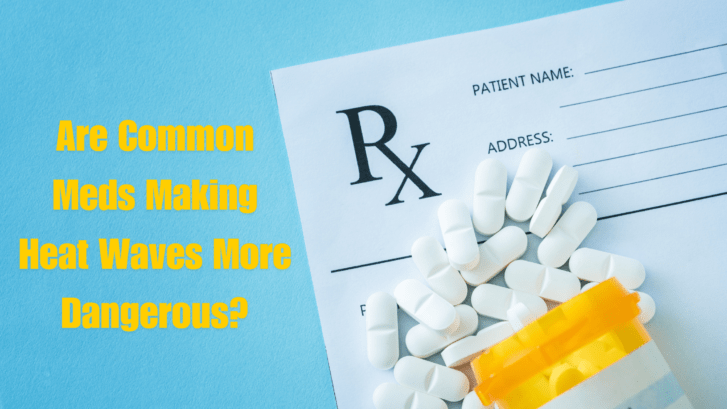Understanding How Heat Affects Your Medications
As the summer heat intensifies, it’s crucial to know how extreme temperatures can impact your medications. For patients of our primary care concierge doctor’s office, staying informed about these effects can help prevent adverse health outcomes and ensure the efficacy of your treatments. Our primary care doctors in Jupiter have the information you need to know about managing your medications during a heatwave:
Medicines Susceptible to Heat Damage
Certain medications are particularly vulnerable to high temperatures, which can alter their effectiveness and safety:
- Blood Pressure Medications: Diuretics reduce fluid in the blood, increasing the risk of dehydration. Beta-blockers can decrease blood flow to the skin, reducing your ability to sense heat.
- Antidepressants: Some antidepressants can impair the body’s ability to cool itself, exacerbating the risk of heat-related illnesses.
- Pain Relievers: Medications like aspirin can deplete fluid and sodium levels, heightening the risk of dehydration.
- Antibiotics and Acne Treatments: These can increase sensitivity to the sun, leading to rashes or severe sunburns. Using sun-protective clothing and high-SPF sunscreen is advisable.
Combining these medications with heat exposure can lead to dizziness, lightheadedness, and falls. Alcohol can amplify these effects, so it’s best to limit its consumption during hot weather.
Proper Storage of Medications
Unless otherwise specified, medications generally need to be stored in cool, dry places. Here are some tips for managing your medicines during travel or extreme heat:
- Traveling by Car: Keep medications in a cooler with ice packs to maintain a safe temperature.
- Flying: Carry medications in your carry-on bag, as the cargo hold can reach freezing temperatures.
- Home Storage: Avoid storing medications in hot areas like cars or near windows.
Concerns with Mail-Order Prescriptions
Mail-order prescriptions are convenient but can be vulnerable to temperature extremes during transit. Here’s how to ensure their safety:
- Storage and Shipping: Pharmacies should ship heat-sensitive medications with ice packs and temperature monitors.
- Upon Delivery: If you suspect your medication was exposed to excessive heat, contact your pharmacy immediately to discuss replacement options.
Research and Recommendations
The interaction between heat and medications is an evolving area of study. Some common concerns may lack extensive scientific backing, but it’s crucial to err on the side of caution:
- Behavioral Adjustments: Stay out of direct sunlight and remain hydrated. These practices can help mitigate the heat’s impact on your medications.
- Consult Your Doctor: Discuss any concerns about your medications and heat exposure with your healthcare provider.
Dr. Renee Salas of Massachusetts General Hospital emphasizes the growing need to identify medications most at risk as climate change progresses. Staying informed and proactive about your medication management can help you stay healthy during extreme heat conditions.
If you have questions about your medications and how to protect them from heat, please contact our office or consult your pharmacist. Your health and safety are our top priorities.
For more information, visit our website or follow us on Facebook for regular updates and tips on staying healthy this summer.

